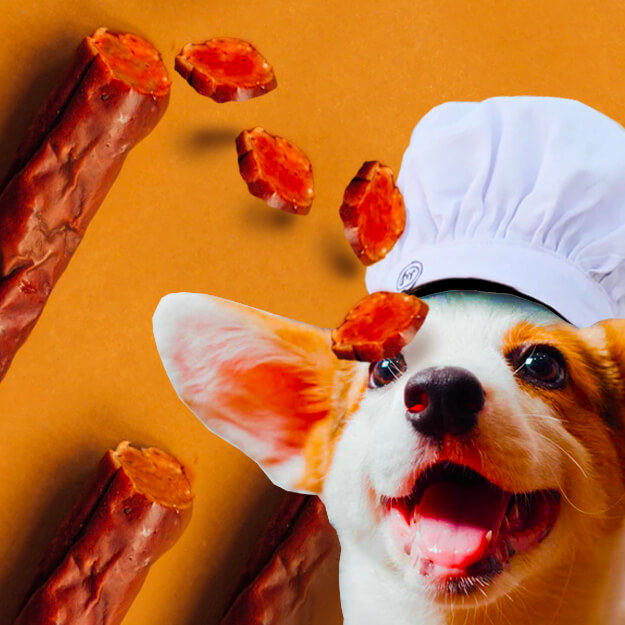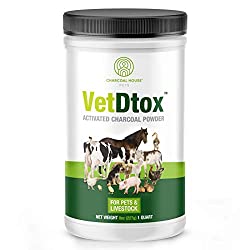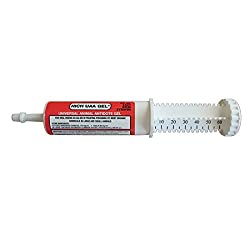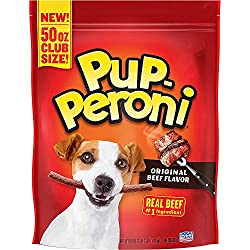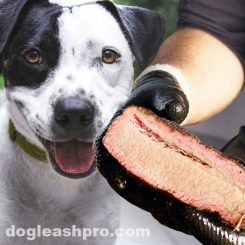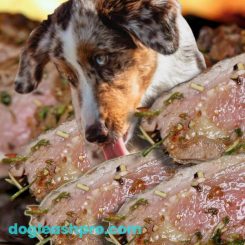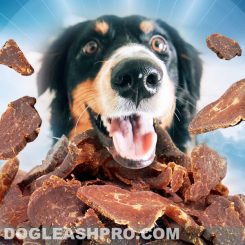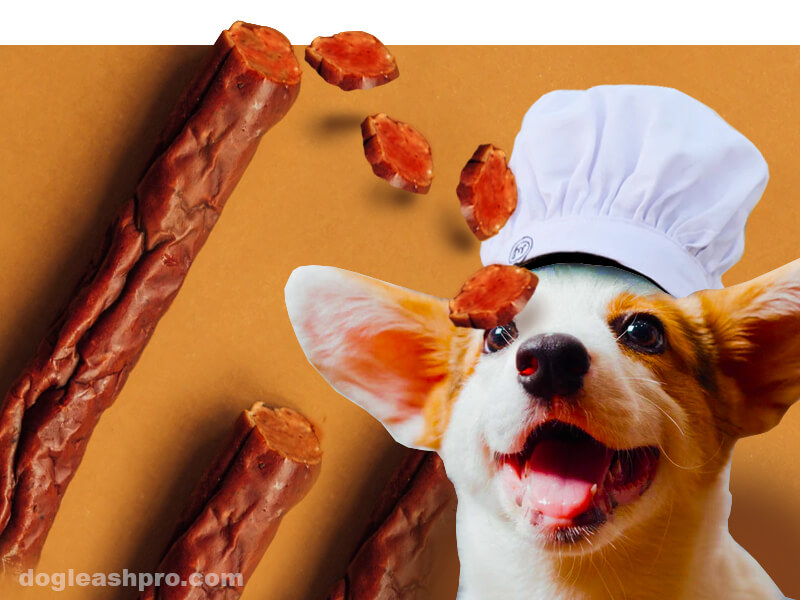
No, dogs should not eat Pepperoni. Although it’s not completely harmful and is safe to eat one slice every 3 months, you should avoid giving any Pepperoni to your pups. When dogs consume Pepperoni, there are many harmful consequences.
Similar to the famous and tasty Italian food Lasagna, Pepperoni also contains a high amount of sodium and ingredients that are toxic to dogs such as garlic and onions. Pepperoni also has a high-fat content. This is why you should keep your pooch away from this unhealthy food and go for other nutritious options.
Let’s dive deep into the article and learn all about whether your dogs can eat Pepperoni.
Table of Contents
Can dogs have Pepperoni?
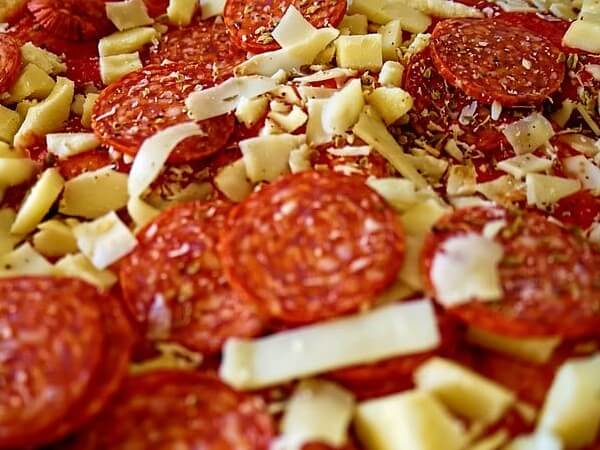
No, dogs should not have Pepperoni. It’s not a good idea to regularly share Pepperoni with our canine friends since doing so can lead to sodium poisoning and a whole host of other health issues in dogs.
To better understand why dogs shouldn’t have Pepperoni, let’s take a look at the nutritional profile of Pepperoni.
Nutritional Profile of Pepperoni (1 piece or 2 grams)
| Name, Unit | Amount |
| Calories, cal | 10.1 |
| Sodium, mg | 31.6 |
| Carbohydrate, g | 0.024 |
| Total Fat, g | 0.926 |
| Saturated Fat, g | 0.354 |
| Protein, g | 0.384 |
| Iron, mg | 0.027 |
| Calcium, mg | 0.38 |
| Magnesium, mg | 0.36 |
| Phosphorus, mg | 3.16 |
| Potassium, mg | 5.48 |
As we can see, in just 1 piece or 2 grams of Pepperoni, there are 10 calories, 0.93 grams of fat (0.35 grams saturated), and 0.024 grams of carbohydrate.
There is also about 32 mg of sodium in just 1 piece of Pepperoni. Although it may not seem like a lot of salt to us, this amount of sodium could lead to salt poisoning in dogs.
In addition to the high salt content in Pepperoni, this highly processed food is also made with a list of ingredients that are not safe for doggy consumption (keep reading as we’ll list the ingredients shortly).
Is Pepperoni bad for dogs?
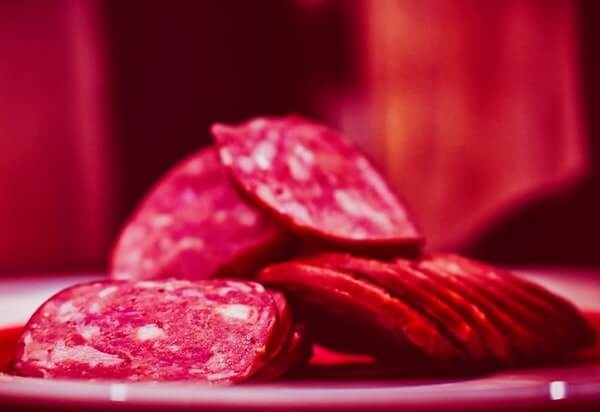
Yes, Pepperoni is bad for dogs. Not only is it highly processed, but it also contains fatty acids, sodium, onion, garlic, and some seasonings, all of which are toxic for dogs.
To understand fully why Pepperoni is bad for our canine companions, we need to look into what Pepperoni really is and what is in Pepperoni. Let’s have a look.
What is Pepperoni?
Pepperoni is a raw or cooked sausage that is made out of pork and beef or just pork. Its thinly cut slices are popularly used as pizza toppings.
What is in Pepperoni?
Pepperoni is highly processed and made with beef and pork trimmings blended with paprika, salt, cayenne pepper, white pepper, allspice, and anise seed via chopping, grinding, and mixing. It is a type of salami that is red and soft. There are many canine-friendly human foods, however, Pepperoni is simply not one of those foods.
Contrary to many’s belief, Pepperoni actually originally came from the United States and not Italy. In the US, Italian-Americans created this air-dried smokey sausage with flavors similar to the southern Italian salamis. Today, Pepperoni is popular and sold in many major grocery stores.
In addition to all the spices in the Pepperoni, let’s go deeper into why Pepperoni is horrible for our furry friends:
Fats are dangerous to dogs
In one slice of Pepperoni, there are about 0.9 grams of fat. That is considered a lot of fat for dogs. If your four-legged friends consume more fat than they need, they will get obese and suffer from obesity-related diseases such as hypertension, diabetes, heart problems, and osteoarthritis.
Overall, too much fat that your dogs don’t need can negatively affect their health and shorten their lifespan.
Too much sodium can cause salt poisoning in dogs
Munching on too much salt makes the dog extremely thirsty and can also cause salt poisoning.
Highly processed food is bad for dog’s health
While Pepperoni is a great pizza topping, like Cheese Balls, this food is highly processed. This means the meat has been fermented or cured. Then, unhealthy additives are added during this process. This is why processed meat like Pepperoni is high in saturated fat.
Seasonings are harmful to dogs
Pepperoni seasonings also include garlic – a food that is very toxic to dogs.
Spices are dangerous for dogs
The spices do not go well with the dog’s digestive system.
When shouldn’t you feed Pepperoni to your dog?
It would be best if you don’t feed your dog any Pepperoni because the dog’s digestive tract can not cope with most of the ingredients involved in preparing Pepperoni. The ingredients, including highly processed meat, preservatives, and additives, can lead to health problems such as upset stomach, pancreatitis, diabetes, acid reflux, and heart disease.
Moreover, the garlic and onion present in Pepperoni are toxic to your dog and are known to cause hemolytic anemia (RBC number decreases). The spices do the rest of the job by causing vomiting, diarrhea, and damage to your furry friend’s esophagus.
You may be interested in Dog Vomit Color Guide
Does Pepperoni give any nutritional benefit to your dog?
There are many disadvantages to feeding your dog Pepperoni, but some elements can be beneficial to your pup, such as:
- Protein: It helps build healthy nails, hairs, tendons, cartilages, and your pup muscles.
- Calcium: Although a very little amount is present, but calcium is beneficial for bones.
- Vitamin B-12: It is important for a healthy nervous system and the formation of blood cells.
- Magnesium: This mineral is required to maintain the metabolic processes of your dog.
- Vitamin D: It is important for a dog’s health because vitamin D helps in bone development and decreases the chances of heart disease and kidney failure in dogs.
- Vitamin B-6: This vitamin is involved in glucose generation, hormone regulation and aids in red blood cell and nervous system function.
- Vitamin C: It is a powerful antioxidant that detoxifies free radicals and reduces inflammation and cognitive aging.
It would be great for your dog if you avoid giving him Pepperoni because these beneficial effects are minimal.
Can dogs eat hot Pepperoni?
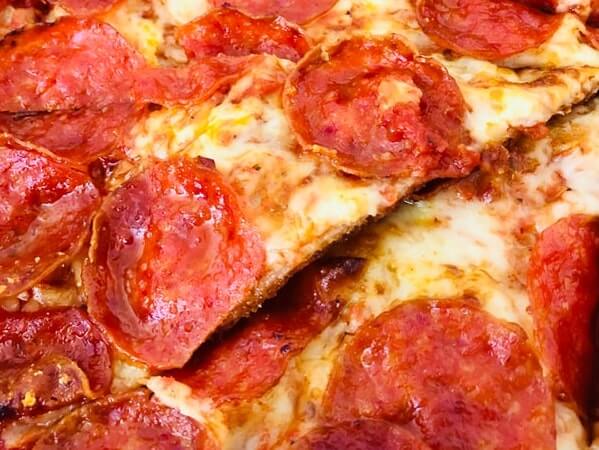
No, do not give your dog any hot Pepperoni. Hot Pepperoni is spicy food. And your dog should not be consuming spicy food because it can result in an upset stomach and digestive problems.
If he accidentally eats more than a few slices of hot Pepperoni in a day, give him a lot of water. Also, look for any signs of dehydration or lethargy. Consumption of spicy Pepperoni may also lead to your dog’s food pipe breakage that is a painful condition for any dog.
Fun Fact: Spicy food is extremely harmful to our canine friends. Dog owners should avoid feeding their pups highly processed and spicy snacks. Doing so can cause health issues such as gastrointestinal upset and upset stomach.
Can dogs eat Pepperoni jerky?
You can give Pepperoni jerky to your dog, but just one slice every two or three months. Avoid adding any onion or garlic powder to the Pepperoni jerky since these are toxic to dogs. Again, don’t serve your pooch any type of spicy jerky as well.
Can dogs eat Pepperoni slices?
Giving Pepperoni slices is not unsafe, but again, only one slice of Pepperoni once every few months and not more than that is best. Exceeding the limits will put your dog in danger.
If your furry companion consumes more than one Pepperoni slice, he risks getting salt poisoning and will also gain weight which will put pressure on his joints and bones. Both are bad for your pooch’s health.
Can dogs eat Pepperoni sticks?
Avoid giving the whole Pepperoni stick to your canine to eat all at once. If the dog eats the whole stick, he is consuming way too much sodium and fat in one go!
And that will, of course, negatively impact your doggie’s health. So, better beware of this health hazard element. If you want, give him just a small piece of that Pepperoni stick.
Can dogs eat turkey Pepperoni?
Much like the traditional type of Pepperoni, dogs eating a slice or two of turkey Pepperoni is fine. Keep in mind that dogs can generally eat all types of meat. So it’s not a matter of the meat, but if the turkey Pepperoni contains fat, salt, and spices. These three things are very harmful to dogs.
If the turkey Pepperoni is high in salt and fat, it is best to give your four-legged friends one slice if you must. Do not give any to your dog if the turkey Pepperoni contains onion or garlic powder. Both of these ingredients are extremely dangerous to dogs.
Remember, you’re doing this to keep your canine companion safe.
Handy Hint: When it comes to meat, it’s best to feed your pooch fresh meat and not Spoiled Meat. Spoiled meat contains bacteria and toxins that can negatively affect your dog’s health and overall wellbeing.
Can dogs eat Pepperoni pizza?

No, you should not give Pepperoni pizza to your dog. The crust and the sauce of the pizza usually contain onion and garlic powder, both of which are poisonous to dogs.
Along with this, the pizza also contains a high amount of sodium, sugars, and fats. This can give your dogs an upset stomach and may affect their health in the long term if they eat this often.
Is Pepperoni good for dogs?
No, Pepperoni is not good for dogs. Although Pepperoni isn’t toxic to your furry companion, it is surely bad for his health. A dog doesn’t care, nor does he knows whether Pepperoni is good for him. So, he won’t hesitate to eat a bunch of slices at once and as many times as he gets a chance to.
Pepperoni consumption by dogs can lead to serious life-threatening situations, so it is not recommended to give your pup this food.
How often can dogs eat Pepperoni?
Ideally, a dog owner should give their furry friends just one slim slice of Pepperoni every three months.
Dogs should not consume this food daily. You must make sure of this limit. The appetizing aroma of the Pepperoni might attract them, but you know what you should do: keep them away from it!
What if my dog accidentally eats a lot of Pepperoni?
If your dog accidentally consumes a lot of Pepperoni, he will be at risk of salt poisoning and weight gain. And as already mentioned, both sodium and fat are not good for your dog’s health.
Head to your dog’s veterinarian right away for a full checkup and let him or her know that your dog has accidentally consumed a lot of Pepperoni. This will prevent the problem from worsening. Your vet may recommend a natural antidote or an antidote gel to treat food poisoning and stomach issues.
Symptoms to watch for
If your pooch ate many slices of Pepperoni, it’s important to observe him carefully and look for any of the following symptoms.
- Throwing up.
- Dehydration and feeling more thirsty.
- Have abdominal pain.
- Diarrhea.
- Having to urinate more frequently.
Treatments if your dog has Pepperoni poisoning
If you see any of the above signs and symptoms, then you should take your dog to the vet immediately.
A veterinary professional will let you know what treatment options are available. For example:
Salt poisoning in dogs:
If your doggie has sodium poisoning, he or she will most likely be hospitalized and given oxygen, lots of IV fluids, and electrolytes. It is advised to stop feeding your dog Pepperoni and any other food or snacks immediately.
As you can see, dogs need immediate medical attention if they have salt poisoning. Clinical signs and symptoms of sodium-ion poisoning include:
- Diarrhea.
- Vomiting.
- Loss of appetite.
- Abnormal accumulation of fluid inside your dog’s body.
- Walking around acting drunk and wobbly.
- Lethargy.
Be sure to contact your vet right away or bring your pooch to the vet as soon as you can because ingesting too much salt can potentially injure your dog’s kidney and can cause coma, seizures, and tremors.
You may be interested in My Dog Is Acting Drunk And Wobbly: Should I Be Concerned?
Dogs with pancreatitis:
Dogs suffering from mild symptoms will be given pain relief and sickness medicine. If the pancreatitis is severe, he will be admitted to the hospital.
Dogs with kidney damage:
Treatment for kidney damage depends upon whether your canine has an acute or chronic kidney failure. Usually, fluid therapy and antibiotics are used to treat kidney damage in dogs. Dialysis can also be performed to remove toxins from the dog’s body.
Canine friendly alternatives to feeding your dog Pepperoni
There are many dog food or dog treat alternatives to Pepperoni that are canine-friendly. If I’m eating Pepperoni, my Labrador will come running. But she will not be eating my Pepperoni. She’s having this treat instead:
You can give your doggo different kinds of meat such as Chicken, Beef, Turkey, and Lamb. These options are rich in protein, vitamin B6, Vitamin D, Zinc, Phosphorus, and potassium which are excellent for your dog’s health.
So, can dogs eat Pepperoni?
Your dog can surely have a taste of the Pepperoni, but it should not be served regularly. One Pepperoni slice every 3 months is fine. Your doggie might not know the adverse effects of eating Pepperoni, but being a responsible pet owner, you should be careful so that your canine friend remains fit, happy, and active!
Related Questions
Dogs should avoid both Pepperoni and salami. These meat options are unhealthy for our four-legged friends because they are highly processed. Both Pepperoni and salami contain high levels of fats, salt, and seasoning.
Processed meat like Pepperoni and salami contain over 30mg of salt for a single slice or 2 grams. Not only does this put your pooch at risk of sodium poisoning, but your pup may experience negative health effects such as frequent urination, bloating, and extreme thirst.
Unlike regular meat like chicken or beef which is packed with protein, both Pepperoni and salami are low in protein and high in fats. These two are the worst snack-type if you are looking to feed your pups low-fat and high-protein snacks.
Fatty food can cause weight gain in dogs and put your dog at risk for health problems like pancreatitis, heart disease, joint pain, diabetes, and a number of other health problems.
Processed meat also contains nitrates, which have been linked to colorectal cancer in humans.
Both Pepperoni and salami are also prepared with spices and herbs like onion and garlic. Garlic and onion are two toxic ingredients for dogs.
If your dog only had a few slices of Pepperonis, then no, Pepperoni won’t harm your dog. However, eating more than a few slices of Pepperonis will be harmful to your pooch – health-wise.
As the article stated, Pepperoni is high in sodium and fat. These two reasons are why dog owners should keep Pepperoni away from their dogs and only allow their furry friends to eat 1 slice occasionally every three months. Allowing your pooch to eat Pepperoni regularly can cause diabetes, heart problems, and canine obesity.
No, dog owners should not give their dogs a slice of pizza. Pizza in general is not healthy for dogs. If the Pizza contains Pepperoni with garlic or onion powder, please do not feed it to your pooch. Some like to sprinkle garlic or onion powder onto their Pepperoni pizza.
Also, pizza contains cheese which is a dairy product. If your pooch is lactose-intolerant, he may experience an upset stomach or gastrointestinal upset. Keep in mind the type of oil that is used to make the pizza. If it is olive oil, then that is fine for doggy consumption.
Overall, pizza is high in salt and fat. Regularly consuming fatty food can cause weight gain in dogs. For these reasons, it’s best to keep pizza away from your canine friends.
DISCLAIMER: THIS WEBSITE DOES NOT PROVIDE MEDICAL ADVICE
The information, including but not limited to, text, graphics, images and other material contained on this website are for informational purposes only. No material on this site is intended to be a substitute for professional veterinary advice, diagnosis, or treatment. Always seek the advice of your veterinarian or other qualified health care provider with any questions you may have regarding dietary needs.
Resources:
https://en.wikipedia.org/wiki/Pepperoni
https://juniperpublishers.com/jdvs/pdf/JDVS.MS.ID.555681.pdf

With over five years of specialized experience as an animal writer, my expertise lies in dog nutrition, health, behavior, grooming, and training. I am dedicated to delivering helpful and informative content that caters to the well-being of our furry friends. My primary goal is to empower pet owners with knowledge and ensure our canine companions thrive in health and happiness. In my free time, I love volunteering at local dog rescue centers.
